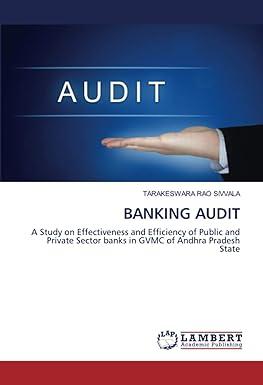Question
Lori purchased a used car for $5,000. After purchasing the car, Lori felt as though she had made a mistake and had overpaid for the
Lori purchased a used car for $5,000. After purchasing the car, Lori felt as though she had made a mistake and had overpaid for the car. Which of the following statements is true?
Multiple Choice
- Lori may rescind the contract based on a unilateral mistake.
- Lori may not rescind the contract based on a unilateral mistake.
- Lori may rescind the contract within a reasonable period of time.
- Lori may rescind the contract based on a mutual mistake.
Which of the following is not an example of duress?
Multiple Choice
- Taking advantage of someone's financial condition
- Withholding someone's property without justification
- Threatening economic harm
- Threatening to breach a contract
Ted took out an insurance policy on his home when he purchased it. He continued paying premiums on the home even after he sold the home to Helen and received full payment. Ted knew Helen smoked late at night and thought that she might burn the house down. Sure enough, Helens smoking resulted in a serious fire destroying the home although Helen escaped safely. Which of the following is true regarding Teds entitlement to the insurance proceeds on the policy he purchased?
Multiple Choice
- Ted is entitled to recover.
- Ted is entitled to recover only if Helen does not also have a policy of insurance on the home.
- Ted is not entitled to recover because insurance proceeds are not available when a fire is caused by smoking in the home.
- Ted is not entitled to recover because he had no insurable interest in the home.
Which of the following was the result in Lopez v. Kmart, the case in the text involving whether the plaintiff, an employee who while a minor signed an arbitration clause in connection with employment, could disaffirm the clause once attaining the age of 18?
Multiple Choice
- The court ruled that the plaintiff could disaffirm the contract only if he notified the company in writing using language set forth by statute.
- The court ruled that the plaintiff could disaffirm the contract because he did so within a reasonable time after turning 18.
- The court ruled that the plaintiff could not disaffirm the contract because, through working, he was considered emancipated.
- The court ruled that the plaintiff could not disaffirm the contract because he waited until he was 18 to try to do so.
Step by Step Solution
There are 3 Steps involved in it
Step: 1

Get Instant Access to Expert-Tailored Solutions
See step-by-step solutions with expert insights and AI powered tools for academic success
Step: 2

Step: 3

Ace Your Homework with AI
Get the answers you need in no time with our AI-driven, step-by-step assistance
Get Started


